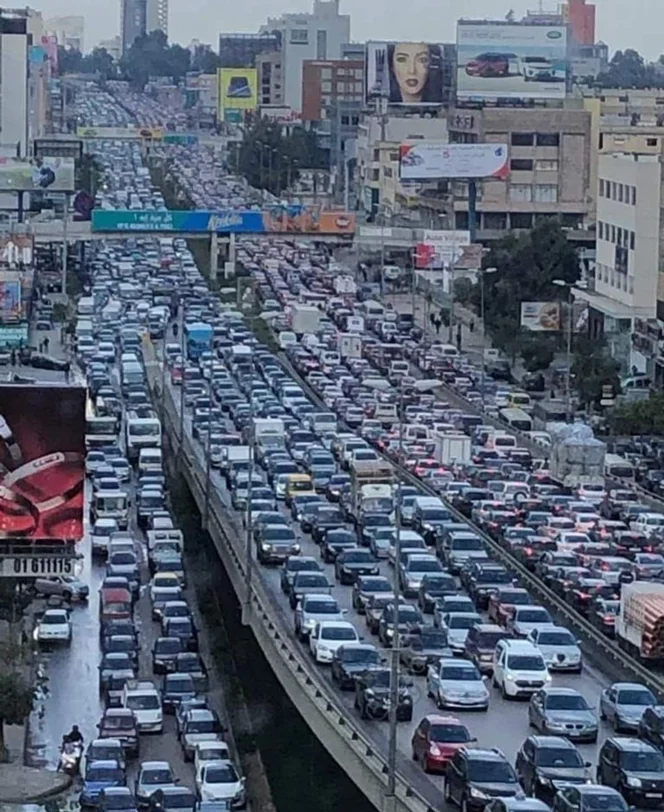Lebanon is taking concrete steps to address one of its most pressing urban challenges: persistent traffic congestion. On August 21, 2025, Deputy Sajih Attié, head of the Parliamentary Public Works Committee, announced a *$40 million plan* to widen the *Jounieh Highway*, a key artery between Beirut and the north, with support from Public Works Minister Fayez Rassamny.
Project Overview
The Council for Development and Reconstruction (CDR) is spearheading the project, which will expand the road between Nahr el-Kalb and Tabarja by adding one additional lane in each direction. Service roads will also be created to safely serve adjacent businesses and residential areas, easing direct pressure on the main highway.
Project Background
Originally conceived in 2006, the project stalled due to political gridlock, opposition from local merchants, and high compensation demands approaching $500 million, partly due to firms along the route holding unlicensed expansions.
A prior 2019 funding initiative of €47 million through the European Investment Bank was halted amid the country’s economic collapse, currency depreciation, and the Beirut port explosion.
Economic Impact of Gridlock
This stretch of highway is heavily congested, with up to *120,000 vehicles daily*, particularly between Tabarja and Beirut.
Commuters face travel times ranging from *18 minutes at night* to *70–90 minutes during peak hours*, a dramatic inefficiency that detracts from productivity and contributes to a broader economic drag.
Economic studies estimate that traffic congestion costs Lebanon between *5% and 8% of GDP annually*, through lost work hours, fuel waste, health impacts, and reduced investor confidence. Specifically, congestion on this route alone may lead to *$12 million in extra fuel costs per year*.
Structural Challenges
A key constraint on efficiency is the highway’s design: unlike controlled-access highways elsewhere, it is bordered by businesses, residences, and unsignalized crossings, creating safety risks and traffic disruptions. The introduction of service roads aims to mitigate this, but without broader traffic management reforms, the underlying flaws remain.
Complementary Measures and Forward Outlook
To support the expansion, authorities announced enhanced public transport initiatives, including new bus lines and a donation of 100 buses from China, though earlier ambitious plans for extensive dedicated bus lanes have yet to be fully implemented.
With cabinet approval still needed, the project is expected to launch within a month. Officials are hopeful that some sections, such as the *Chekka-Beirut corridor*, will be completed by late 2025. If delivered successfully, the expansion offers a significant step toward restoring mobility and economic vitality in the region. Yet as analysts caution, **mdeep systemic reforms* are essential to ensure a long-term solution.
*At the end*
The Jounieh Highway project represents a vital investment in Lebanon's infrastructure. While it addresses urgent congestion, its true success will depend on integrating comprehensive urban planning, modern transit systems, and regulatory improvements. For now, it remains a promising yet partial remedy to a long-standing national headache.
Beiruting News
Other news
-
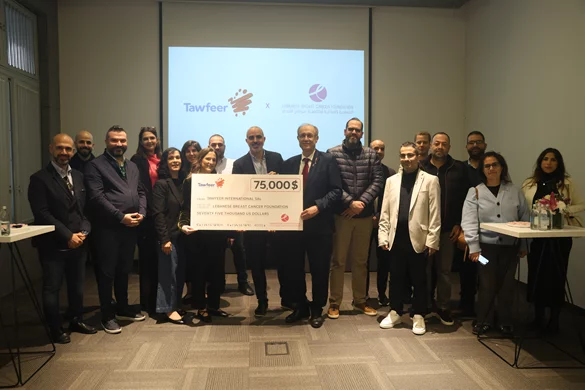 What's up ?
What's up ?$75,000 DELIVERED: TAWFEER’S CAMPAIGN PROVIDES CRITICAL FUNDING FOR BREAST CANCER PATIENTS THROUGH THE LEBANESE BREAST CANCER FOUNDATION
10 february 2026 -
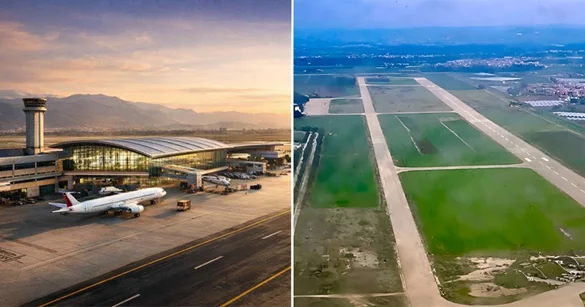 What's up ?
What's up ?Qlayaat Airport Set for Takeoff as Summer Approaches
08 february 2026 -
 What's up ?
What's up ?Ibrahim Maalouf & Hiba Tawaji announce a joint musical project
03 february 2026 -
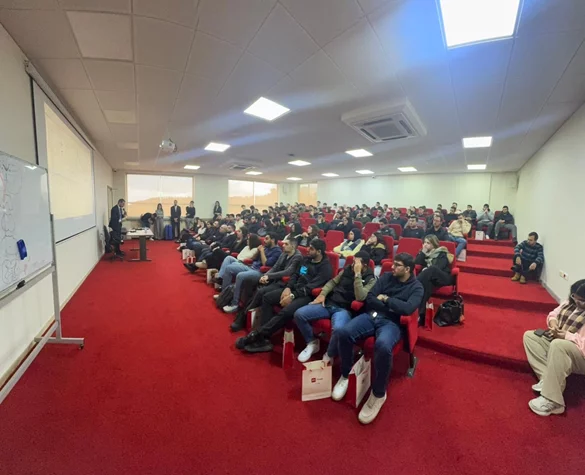 What's up ?
What's up ?CFI Organizes an Educational Tour at Leading Lebanese Universities to Bring Real-World Trading Education to Students
04 february 2026 -
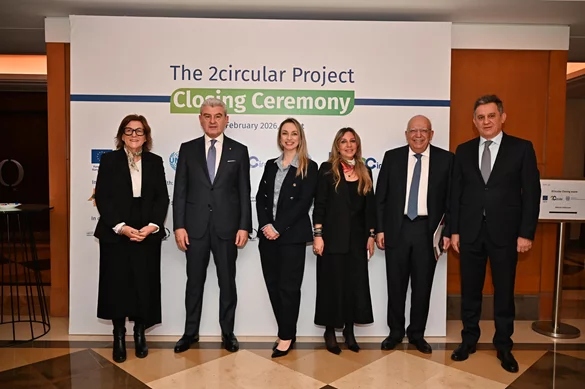 What's up ?
What's up ?Minister of Industry Joe Issa-El-Khoury: Towards an Innovative and Sustainable Industrial Sector
02 february 2026 -
 What's up ?
What's up ?"Made of Many"! More Success for Al Forno Gourmet: Opening of a Second Branch in Verdun
01 february 2026 -
 What's up ?
What's up ?Workshop by “ASSAMEH Birth & Beyond” on Congenital Anomalies
30 january 2026 -
 What's up ?
What's up ?This week’s OLT20 Chart Analysis
21 january 2026 -
 What's up ?
What's up ?70th Anniversary Opening of the Baalbeck International Festival with a Cine-Concert Tribute to Gabriel Yared, co-produced with the Abu Dhabi Festival
18 january 2026 -
 What's up ?
What's up ?World Premiere: “Ousafirou Wahdi Malikan”, A Grand Symphonic Oratorio Marking the Centennial of Mansour Rahbani Composed by Oussama Rahbani | Starring Hiba Tawaji
18 january 2026 -
 What's up ?
What's up ?Why Beirut Still Matters: A Global Company’s Bet on Lebanese Talent
15 january 2026 -
.webp) What's up ?
What's up ?Rebirth Beirut Opens 2026 with an Innovative Art Experience: a catwalk for paintings “As We Exist” by Hiba El-Khatib Badreddine
14 january 2026 -
 What's up ?
What's up ?Meet Lebanese-American Singer Mayssa Karaa
12 january 2026 -
 What's up ?
What's up ?Monoprix Opens Its First Store in Lebanon in Partnership with Gray Mackenzie Group
23 december 2025 -
 What's up ?
What's up ?A Night of Music, Solidarity, and Purpose Shining Stars of Hope 2025 at MusicHall Beirut
18 december 2025 -
 What's up ?
What's up ?Tania Kassis illuminates Tripoli in a huge Christmas concert with a sublime red dress designed by Robert Abi Nader
15 december 2025 -
 What's up ?
What's up ?Bassam Fattouh and OpenMinds Celebrate Diversity and Beauty with “The Puzzle of Beauty”
09 december 2025 -
 What's up ?
What's up ?Tania Kassis Faces Cyberattack Ahead of Her Concerts… but the Show Goes On!
09 december 2025 -
 What's up ?
What's up ?Zahle Magical Christmas: A First-of-Its-Kind Holiday Spectacle in the Bekaa
08 december 2025 -
 What's up ?
What's up ?Joy with Every Turn: Zaitunay Bay Unveiled Lebanon’s First Rotating Tree
05 december 2025



